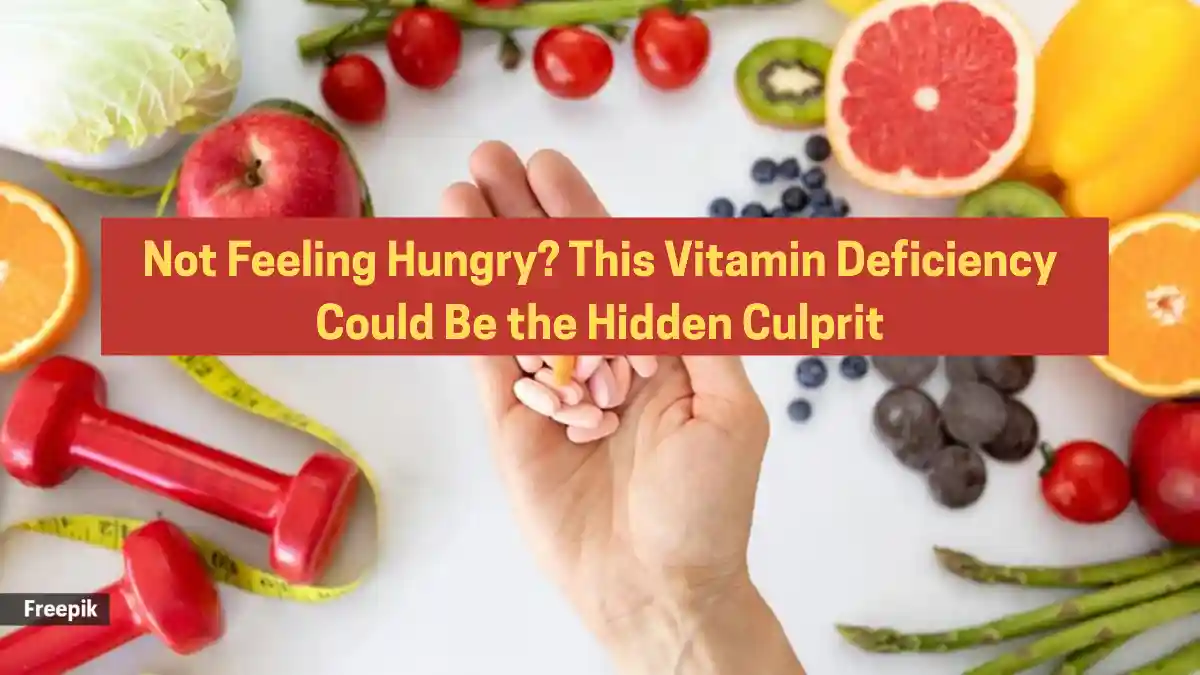Why you’re Not Feeling Hungry?
If you don’t feel hungry, even when tasty food is in front of you, it could be a sign of a vitamin deficiency. Many people think that loss of appetite is only due to poor digestion, stress, or stomach problems. But in reality, lack of essential vitamins in the body can also reduce hunger. If this problem continues for a long time, it may become a serious health risk.
Many of people facing this issue now days. This problem happening due to lack of vitamin efficiency in the body. Now days many of people busy in life and due to busy life they are not taking good diet and not doing exercise.
Some of the people not taking breakfast on time, lunch and also dinner, due to this of this there is a deficiency of vitamins in our body.
Let’s understand which vitamin deficiencies can cause loss of appetite and how you can fix them.
1. Vitamin B12 Deficiency
One of the most common reasons for loss of appetite is Vitamin B12 deficiency. This vitamin keeps the brain, nerves, and digestive system active. When your body lacks Vitamin B12, you may feel tired, weak, and lazy. The body needs food, but the brain does not send the proper hunger signals, which reduces appetite over time.
How to get vitamin B12:
If you want to fix vitamin B12 in your body then you have to take some food on daily basis.
Eat foods rich in Vitamin B12 like eggs, milk, yogurt, cheese, fish (salmon, tuna, sardines), chicken, and meat.
Vegetarians can consume soy milk, fortified bread, and cornflakes.
Take Vitamin B12 supplements only after consulting a doctor.
Maintain a healthy lifestyle, manage stress, and get enough sleep.
2. Vitamin D Deficiency
Vitamin D is rich source of Calcium and help to absorb calcium in our body and it helps to maintain strong bones. But it also affects energy levels and mood. When the body lacks Vitamin D, people feel tired and lazy, which lowers their interest in food. Over time, it can also affect the digestive system.
How to solve this vitamin D Deficiency?
Spend at least 15–20 minutes daily in sunlight, preferably in the morning or evening.
Eat Vitamin D-rich foods like fatty fish (salmon, tuna), dairy products (milk, yogurt, cheese), and egg yolks.
Consume fortified foods such as certain breads and cornflakes.
If needed, consult a doctor for Vitamin D supplements.
3. Vitamin B1 (Thiamine) Deficiency
According to the US National Center for Biotechnology Information (NCBI), lack of Vitamin B1 (Thiamine) can also cause poor appetite. Thiamine is an essential vitamin that helps the body convert food into energy. Without it, you may feel fatigue and reduced hunger. This is common in elderly people but is now also seen in younger generations.
How to overcome vitamin deficiency?
If you want to increase Vitamin B1 in your body then you have to focus on healthy food which contain Vitamin B1.Include whole grains (oats, brown rice, and wheat), lentils, green vegetables, nuts (walnuts, peanuts, and sunflower seeds), dairy products, eggs, fish, and chicken in your diet.
If food alone is not enough, doctors may recommend Vitamin B1 supplements.
Conclusion
Loss of appetite should not be ignored. If you don’t feel like eating regularly, it could be a sign of Vitamin B12, B1, or D deficiency. A balanced diet, exposure to sunlight, proper rest, and medical advice can help restore normal appetite and keep your body healthy.
Important Information
All vitamin are very important for our body. If anyone vitamin deficiency in our body then we will get some problem. To maintain good health we have to maintain all vitamin in our body, because due to deficiency of vitamin in our body we can face serious problem. If you feel weakness, pain, dryness on face etc. then you must have to contact to the doctor.
Most of the important is that take healthy food every day and also on time then you will neo get any vitamin deficiency and also do proper exercise every day.
Disclaimer
This article provides general health information only. It is not a substitute for professional medical advice, diagnosis, or treatment. Loss of appetite may have many different causes, including medical conditions. Always consult a qualified doctor or healthcare provider for proper diagnosis and treatment before making any changes to your diet, supplements, or lifestyle. The author and publisher are not responsible for any health issues or consequences that may arise from using the information given here.


1 thought on “Not Feeling Hungry? Missing This Vitamin Might Be the Reason”